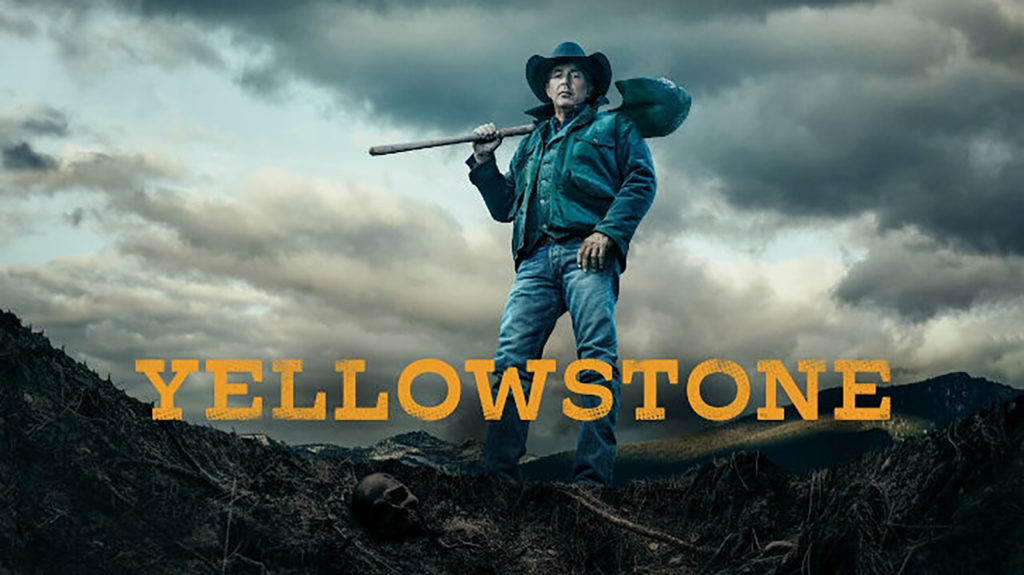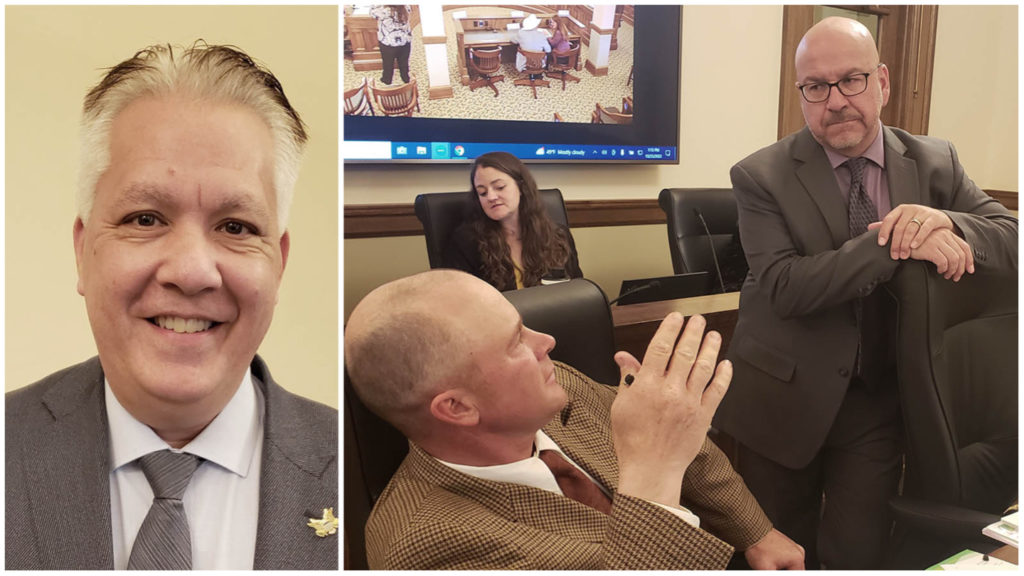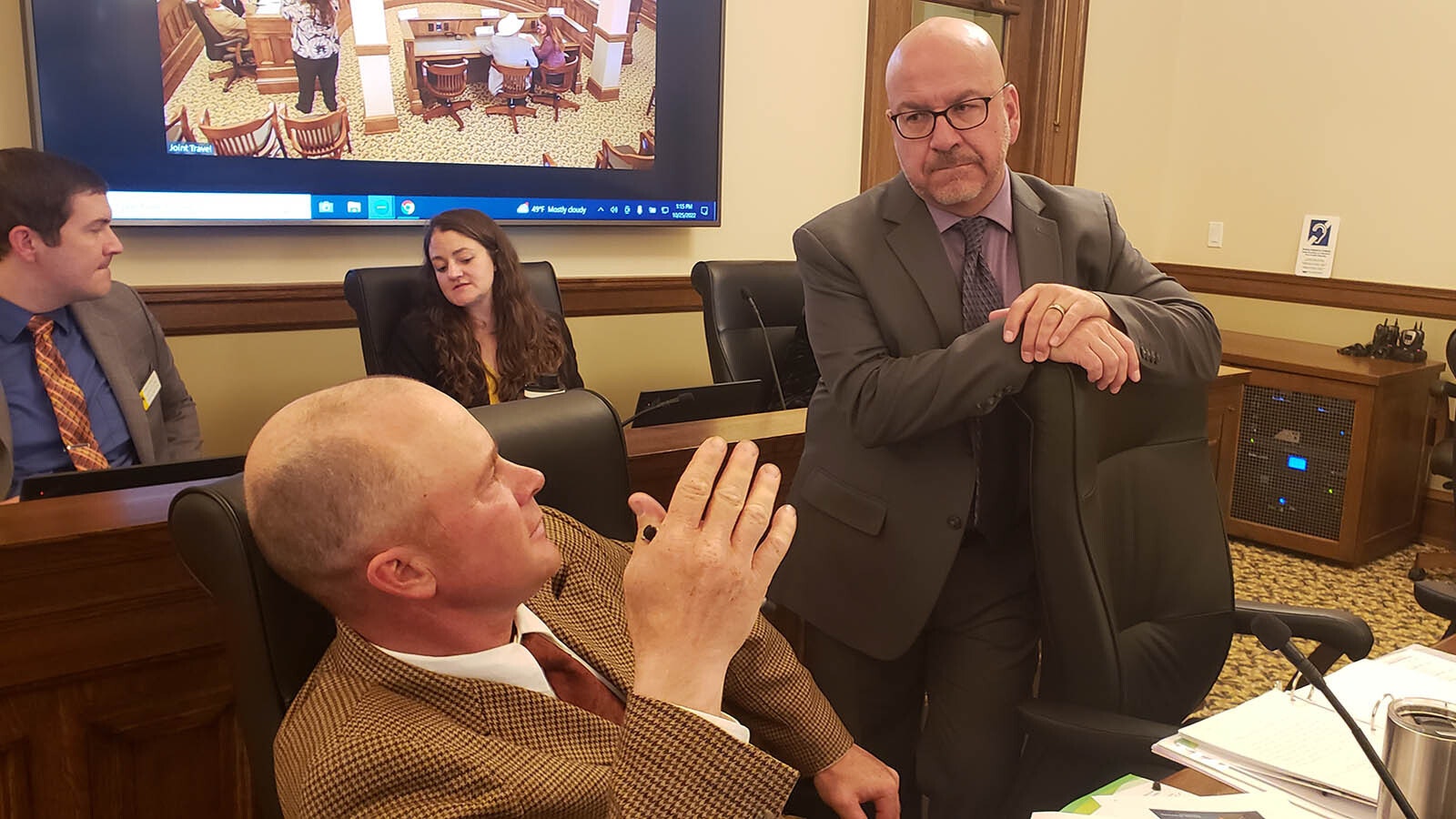By Renee Jean, Business and Tourism Reporter
renee@cowboystatedaily.com
The film industry has been cashing in on Wyoming’s multimillion-dollar cowboy mystique for decades, but a lot of those movies purported to be set in the Cowboy State are made elsewhere.
That’s prompted lawmakers to again try to develop an incentives bill to attract more filmmakers to Wyoming, bringing with them the millions of dollars in sales tax revenue production crews typically spend while here.

How Much?
As an example of how much money is potentially being left on the table, the HBO Max Series “The Last of Us” spent $15 million on an episode depicting Wyoming scenes that were actually shot in Canada, according to media news site The Gauntlet.
The popular television show “Yellowstone,” which is set in Wyoming, has never filmed here. The production spent $80 million for three seasons filming in Utah before moving operations to Montana, which offered a little sweeter rebate at $10 million, the Salt Lake Tribune reports.
These sales tax expenditures are aside from the tourism opportunities filming locations can create when fans of shows want to visit the locations where their favorite characters are brought to life.
Such visits can be hard to quantify, but as one example of the potential, the family that owns land where the 1977 movie “Close Encounters of the Third Kind” was filmed has turned a concrete pad laid by the film company into part of a KOA camp. There are daily showings of the movie as part of the campground’s activities and there are hikes around Devils Tower as well.
Sweetening The Deal
The latest iteration of a Wyoming film incentives bill seeks to bring the state a larger slice of sales tax revenues, thousands of jobs and untapped tourism potential by offering a $3 million rebate every two years on production expenditures on Wyoming goods and services.
The money would come from the statewide lodging tax.
Filmmakers would be eligible for up to 30% reimbursement of qualified expenses for productions not only set, but also shot in Wyoming. It is a reimbursement, so the rebates would not be available before a production is filmed.
The rebates are available in two tiers and phased in based on several factors.
• For a 15% rebate, film companies would have to spend a minimum of $200,000 in Wyoming and show a distribution plan of at least 1 million viewers.
• Filmmakers could gain an additional 5% for hiring at least 60% Wyoming residents for a production crew, and another 5% for completing most of the postproduction work in state.
• Films with minimum viewership of at least 7.5 million could tack on another 2.5% rebate on Wyoming expenditures.
• If at least 10% of the workforce are also veterans who live in Wyoming or Wyoming students age 16 and older, regardless of official state residence, that’s worth another 2.5%.
• In Tier 2, smaller films could qualify for up to 15% in incentives. The first 10% is for minimum expenditures of $50,000 as well as having at least 60% Wyoming residents on the production crew.
• An additional 5% is available for productions that also have a Wyoming storyline or theme in Tier 2.

Several ‘No’ Votes
While the bill advanced from the Joint Travel, Recreation, Wildlife and Cultural Resources Committee in August and will be presented in the next legislative session, it advanced on a split vote with five lawmakers on the 12-member committee voting against it.
Rep. J.D. Williams, R-Lusk, was one of the “no” votes. He told Cowboy State Daily he sees incentivizing as a two-edged sword, but agrees a film incentive could be considered an investment in the state.
“It’s a little bit controversial though,” he said. “How badly do we want Hollywood here?”
Rep. Chad Banks, D-Rock Springs, meanwhile, told Cowboy State Daily he is a big supporter of the bill.
“If we’re not doing it, we’re missing out,” he said. “They’ve all looked at Wyoming and then went elsewhere.”
Rep. Christopher Knapp, R-Gillette, meanwhile, who also voted against the bill, believes an incentive is not in line with the Wyoming Constitution.
“The reason for that is because it takes a specific industry, and sometimes specific companies, and actually gives a rebate on expenses,” he told Cowboy State Daily. “So, it’s one thing for the state of Wyoming to say, ‘We would like to spend money on advertising,’ or, ‘We would like to do a contract for services,’ but it’s quite another to take the expenses of a company and pay for them.”
How To Track?
He also questions how to measure the impact of such a bill.
“It would be nice to measure the amount of impact your dollars have,” he said. “I’m less concerned with the people that they used to make the film and the employment that that creates, whether it’s temporarily or with a series.
“I’m more concerned with what does it bring into the state for tourism numbers.”
With a different structure, Knapp said he might be able to support a bill for incentivizing the film injustry. But the way it’s set up for now, he can’t see how it qualifies as a constitutional rebate.
“They haven’t paid anything to get any money rebated,” he said. “It’d be one thing if they paid in ‘X’ amount of taxes and say you get a tax rebate or tax exemption. They haven’t paid a single thing in to the state of Wyoming for us to rebate anything back to them.”





